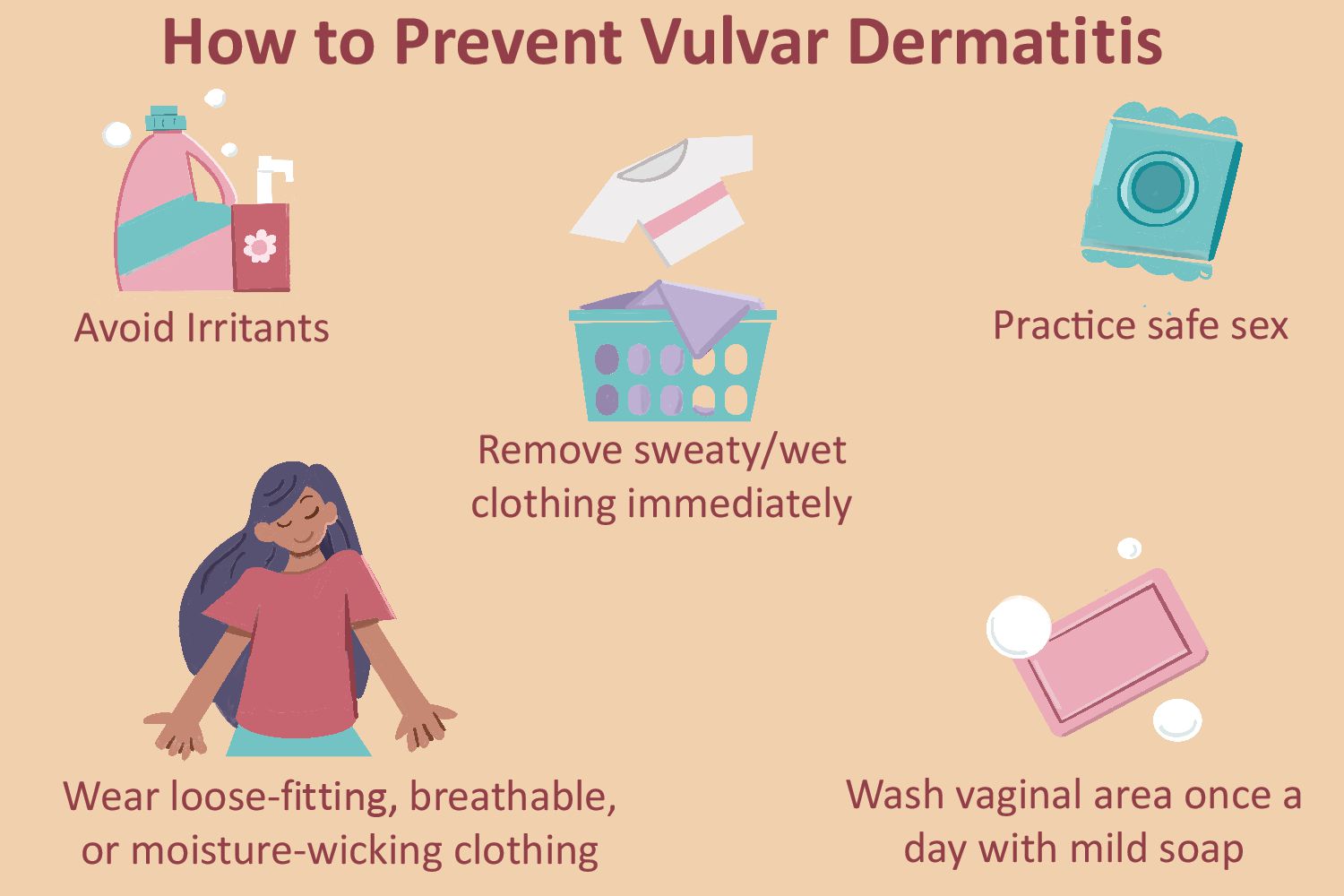Understanding Vulvar Dermatitis: Causes, Symptoms, and Treatment
Vulvar dermatitis is a common condition that affects many women. It can be uncomfortable and sometimes even painful, but with the right knowledge and care, it can be managed effectively. In this comprehensive guide, we will explore the causes, symptoms, and treatment options for vulvar dermatitis, empowering you with the information you need to maintain optimal vulvar health.

What Is Vulvar Dermatitis?
Vulvar dermatitis refers to the inflammation of the vulvar skin, which is the outer part of the female genitalia. This sensitive area is prone to various skin issues, including dermatitis. Vulvar dermatitis can manifest in different forms, and its severity may vary from person to person.
Common Causes of Vulvar Dermatitis
Understanding the causes of vulvar dermatitis is crucial in both prevention and management. Here are some common factors that contribute to this condition:
Allergies and Irritants:
Contact with irritants such as perfumed soaps, detergents, or certain fabrics can trigger vulvar dermatitis, especially in individuals with sensitive skin.
Hormonal Changes:
Hormonal fluctuations, particularly during menopause, can lead to thinning and increased sensitivity of vulvar skin, making it more susceptible to irritation.
Symptoms of Vulvar Dermatitis
Vulvar dermatitis can present a range of symptoms, which may include:
Itching and burning sensation
Redness and inflammation
Dry or scaly skin
Soreness or discomfort
Pain during intercourse or urination
Swelling
It’s important to note that not all cases of vulvar discomfort are due to dermatitis. Some symptoms may indicate other underlying conditions, emphasizing the need for proper diagnosis.
Diagnosis and Medical Evaluation
If you experience persistent vulvar symptoms, it’s advisable to seek medical evaluation. A healthcare provider, typically a gynecologist or dermatologist, can diagnose vulvar dermatitis through a physical examination and a review of your medical history. In some cases, they may recommend further tests to rule out infections or other conditions.
Managing Vulvar Dermatitis: Treatment Options
Managing vulvar dermatitis involves addressing the underlying causes and alleviating symptoms. The treatment approach may vary depending on the severity of the condition and its underlying causes. Here are some common treatment options:
Lifestyle and Hygiene Practices
Gentle Cleansing:
Use mild, fragrance-free soap and warm water to cleanse the vulvar area. Avoid harsh soaps, douches, and scented products that can worsen irritation.
Cotton Underwear:
Opt for breathable, cotton underwear, which can help reduce moisture and friction. Avoid tight-fitting synthetic fabrics.
Avoid Irritants:
Identify and eliminate potential irritants such as perfumed toilet paper, laundry detergents, or bubble baths from your daily routine.
Alternative and Complementary Therapies
Some individuals find relief through alternative therapies, such as:
Cool Compresses:
Applying a cool, damp cloth to the vulvar area can soothe itching and inflammation.
Sitz Baths:
Soaking in a warm sitz bath may provide relief from discomfort.
Living with Vulvar Dermatitis
Coping with vulvar dermatitis may require ongoing management and adjustments to your daily routine. Here are some additional tips for living comfortably with this condition:
Follow Your Treatment Plan:
Adhere to the treatment plan recommended by your healthcare provider, whether it includes medications or lifestyle modifications.
Monitor Symptoms:
Keep an eye on your symptoms and report any changes or worsening to your healthcare provider.
Seek Support:
Don’t hesitate to reach out to support groups or healthcare professionals specializing in vulvar health for guidance and emotional support.
FAQ’S
Q: What is vulvar dermatitis?
A: Vulvar dermatitis is the inflammation of the skin on the outer part of the female genitalia, known as the vulva. It can cause symptoms such as itching, redness, and discomfort.
Q: What are the common causes of vulvar dermatitis?
A: Common causes include exposure to irritants, hormonal changes, infections, and underlying skin disorders like eczema or psoriasis.
Q: What are the symptoms of vulvar dermatitis?
A: Symptoms may include itching, burning, redness, dry or scaly skin, soreness, pain during intercourse or urination, and swelling.
Q: How is vulvar dermatitis diagnosed?
A: Diagnosis is typically made through a physical examination and a review of medical history by a healthcare provider. Additional tests may be required to rule out infections.
Q: What are the treatment options for vulvar dermatitis?
A: Treatment may involve lifestyle and hygiene practices, topical medications like corticosteroid creams, oral medications for infections, managing underlying conditions, and alternative therapies.
Q: Are there preventive measures for vulvar dermatitis?
A: Yes, preventive measures include gentle cleansing, using skin-friendly products, choosing breathable underwear, avoiding potential irritants, and regular health check-ups.
Q: Can vulvar dermatitis be caused by allergies?
A: Yes, allergies to products like perfumed soaps, detergents, or certain fabrics can trigger vulvar dermatitis in individuals with sensitive skin.
Q: Is vulvar dermatitis related to menopause?
A: Hormonal changes during menopause can lead to thinning and increased sensitivity of vulvar skin, making it more prone to dermatitis.
Q: Can vulvar dermatitis be a recurring condition?
A: Yes, vulvar dermatitis can recur, especially if irritants or triggers are not avoided. Proper management can help minimize recurrences.
Q: When should I seek medical help for vulvar dermatitis?
A: If you experience persistent or severe symptoms, or if over-the-counter treatments do not provide relief, it’s advisable to consult a healthcare provider for evaluation and guidance.
Conclusion
Vulvar dermatitis can be a challenging condition, but with the right knowledge and care, it can be effectively managed. By understanding its causes, recognizing symptoms, and implementing preventive measures, you can improve your vulvar health and overall well-being. If you experience persistent symptoms or have concerns, consult with a healthcare provider for a personalized assessment and treatment plan.




